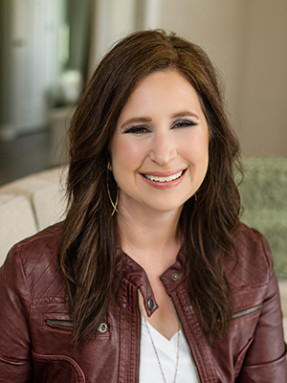When Connie Allen, 59, became single again, she was ready to leave the area of Tuttle, Okla., which she had called home since she was 8. Following the death of her parents and divorce from her second husband, she realized that caring for a 4,000-square-foot home and outbuildings on nearly seven acres was too much to keep up with alone. Moving roughly 20 miles to the town of Yukon would put her close to her daughters and grandchildren.
While she was no stranger to real estate, Allen had never bought or sold a home without a partner. She turned to another Connie— Connie Miller, ABR, CRS, with the Miller Dream Team at Crossland Real Estate in Oklahoma City—to help her through the process.
A new report from the National Association of REALTORS® shows that, in every age category, single women buy in higher numbers than single men. But much of the buzz about single-female buyers is often around young women delaying marriage and heading into homeownership on their own. It turns out older women may be a better customer target.
Married couples still make up the majority of buyers among all generations. But according to the 2020 Home Buyer and Seller Generational Trends Report, a significant 22% of the 65 to 73 years old home-buying population is made up of single women. Among 55- to 64-year-olds and 74- to 94-year-olds, 21% of buyers are single women. Compare that to younger generations, where the percentage of buyers who are single females ranges from 12% to 17%.
The takeaway: Real estate professionals may find success applying sales strategies for first-time buyers toward women who, like Allen, have been homeowners for many years but have never purchased on their own.
Behind the Data
Ali Whitley, ABR, CRS, a sales associate and director of education and training at RE/MAX Crossroads Properties in Akron, Ohio, says purchases by women over 55 are often tied to emotional life events, such as death or divorce. ”These can be very emotional transactions,” Whitley says. “They can be from the loss of a spouse and sometimes the loss of the financial breadwinner, too. They are trying to determine what to do next. There’s an emotional impact that may not have been there in any of their previous real estate transactions.”
“Graying divorce” also has increased, adding more mature singles to the housing market. Divorce rates among adults 50 and older have doubled since the 1990s and tripled among those 65 and older, according to data from the Pew Research Center. In 2018, 16.1% of people 55 and older were divorced—a record high—up from just 5% in 1980.
Working With Singles
Whitley says the single female buyer niche has grown enough that she highlights how to work with single women in the real estate course “Generational Buy,” which she teaches nationwide. “I encourage buyer’s agents to pay attention to this segment because they may require some additional empathy in a transaction and some additional time,” she says. “This may not be an exciting purchase for them, as is the case for buyers in other situations.”
Whitley recalls working with an older, single female client who had lost her spouse unexpectedly. “It’s not always the best time to make a big decision” after such a loss, Whitley says. “I needed to be cognizant that she needed to take time and make sure she wasn’t making a snap decision. Unless the transaction is motivated by a financial decision that will get the buyer into a better position — or it’s absolutely needed to move forward in life — a surviving spouse may be better off waiting for a year to make a decision with a clearer head.”
Even when a move isn't motivated by the death of a spouse, purchasing alone is a big step. Your single client will likely take notice of the special attention you give her. “I appreciated Connie's knowledge, warmth, and attention,” Allen says. “She checked on me all the time. She was very personable, very informative, but not pushy. She was more concerned about the person than the sale.”
Don’t Prejudge Their Preferences
Don’t make assumptions about the type of property single baby boomers are looking for; not all of them want to downsize to a smaller home. Certainly, some will be drawn to condo life, which relieves the financial and physical pressure of yard and exterior maintenance. But Whitley says she’s also had a large number of 65-and-over clients who desire a bigger home—three bedrooms or more—for their grandkids and family to visit. After all, being near family and friends is top of mind among older generations, NAR’s report shows. Among people 63 and older, the desire to be closer to friends and family was the top motivator for a home purchase.
That’s what motivated Allen's move. When she toured her new home, she says, “I could picture the grandkids visiting here.” Allen also wanted a move-in-ready, modern home. Bonus: She'd cut her work commute dramatically.
Allen toured only two homes before making her decision, Miller recalls. Asked what special considerations she might make when selling to a less-decisive single woman, she said safety and home maintenance might be chief concerns. But there again, don't prejudge. “Women are more independent today,” Miller says. “I see women now taking charge of having their own portfolio and doing their own work on their properties. It’s inspiring.”
The older, single female buyer cohort can be a rewarding business niche, Miller says. For one thing, there’s no concern about differing opinions between partners. Also, “I think older buyers tend to have more trust in us,” Miller says. “They like you to call them. They expect it. They don’t feel like they’re being treated properly if you don’t call. Younger buyers will wonder, 'Why did you call when you could have texted?’”







